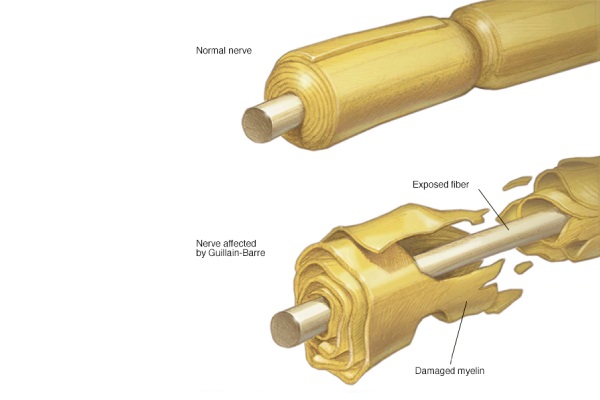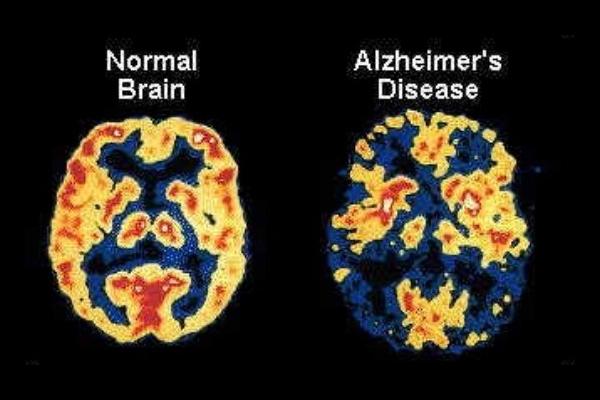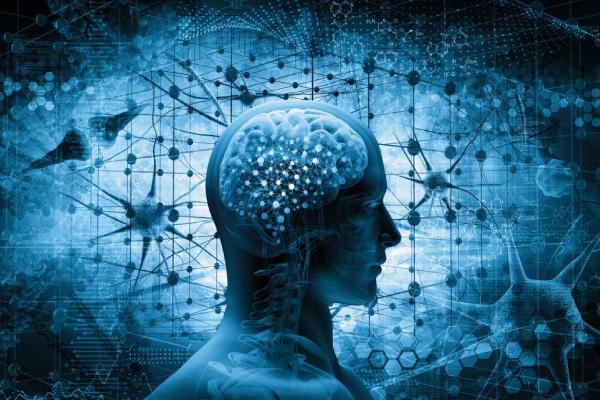Dr. G. Balamurali, a neurosurgeon in Chennai, specializes in deformity and complex spine surgery, DREZ or Brachial Plexus lesioning pain procedures, pediatric spine surgery, and endoscopic and minimally invasive spine surgery.
An Informative On The Guillain-Barré Syndrome (GBS)

When the body’s immune system affects the peripheral nervous system or a part of it by mistake, it causes the Guillain-Barré Syndrome (GBS). This is not a common neurological disorder that affects the nerves outside the spinal cord and brain. GBS severity ranges from mild weakness to severe paralysis and dependency on external elements for breathing. The recovery rate for GBS is exceptionally high, with the only downside that the patient can feel weakness post-recovery. GBS affects any person despite age and gender, and the occurrence has been noted about ten in a million people.
The Causes Of GBS
Researchers have reached dead ends trying to figure out the cause of GBS. The exact cause has not yet been figured out, and the only thing we are sure of is that it is not caused by inheritance, nor is it contagious. GBS is an autoimmune disorder. Autoimmune disorder means that our body’s immune system attacks our internal parts. In this case, the nervous system is seen as a target similar to viruses and bacteria infection. At times, it is a surgery that triggers the infection, while there are cases reported after a gastrointestinal or respiratory infection. A neurosurgeon in India states that several countries reported the presence of GBS right after a zika virus infection.
GBS Symptoms
Unexpected responses such as tingling sensation are observed in the legs, feet, hands, or back. In children, the severity may range to a level that makes them difficult to walk. The sensations are short-lived symptoms and gradually decrease once the long term ones appear. The long term symptoms include weakness on both sides of the body and require immediate medical care. The muscles, face, and arms are affected by the symptoms and show the spread of nerve damage. Symptoms start with the upper body and slowly move downwards to the leg and feet. A neurosurgeon in India states that his patient reached a stage of weakness within two weeks once the symptoms arose. By the third week, their weakness was extreme, accompanied by the onset of pain and sensation on various parts of the body.
Effects of GBS
The top neurosurgeon in India states that GBS as an autoimmune disorder affects the nerve insulation and affects the nerve cell. This, in turn, renders the nervous system unable to carry out signals and cause muscle interaction. Since the muscle is unable to move according to the brain signals, it causes weakness. When the GBS symptoms are seen on both sides of the body, it is called symmetric. The weakness appears quickly in GBS and worsens rapidly over days. As the nerves are damaged, the brain receives incorrect signals such as tingling sensations and pain. In difficult situations, the muscles controlling breathing become weak and require machine support externally to breathe. It is best to get diagnosed and start treatment once the symptoms are observed.
How To Detect Alzheimer’s Disease With Its Symptoms

Alzheimer’s and Normal Aging: How To Tell The Difference?
Alzheimer’s Disease is a slow, progressive and irreversible disorder of the brain. It is the slow degeneration and death of brain cells. Alzheimer’s is markedly characterized by the destruction and loss of memory and other important mental functions.
More often than not, it is confused with age-related symptoms and changes that are quite common in a normal ageing process. There are clear indications that demarcate Alzheimer’s and age-related changes.
Alzheimer’s is characterized by
- Repeated poor judgement
- Poor decision-making
- Repeated failure of memory
- Losing track of time and place
- Difficulty in having a conversation.
Age-related changes are more common like:
- Forgetting only once in a while
- Forgetting and remembering later.
- Rare instances of bad decision making
- Misplacing things from time to time.
8 Warning Symptoms Of Alzheimer’s
- Memory Loss is the most important sign that crops up in the early stages of the onset of the disease. Unlike the normal forgetfulness where one can remember things after some time, people with Alzheimer’s will repeat what they’ve said or ask the same questions on a loop. They will resort to memory aids to help them remember.
- Patients will start showing difficulty in completing simple tasks. Something as simple as brushing their teeth will become a huge challenge. They will forget how to do it or spend inordinate amounts of time to complete it.
- Alzheimer’s patients will lose track of time and place. They tend to forget where they are, even if the house is the place they’ve lived in all their life.
- Inability to make decisions and solve problems will start showing up. Concentrating on a simple task will be a herculean task for them.
- As the condition progresses, the patient will experience difficulty in speaking coherently. Struggling with vocabulary, the inability to complete a sentence and forgetting simple words are some other noticeable symptoms.
- A person living with Alzheimer’s will slowly withdraw from all social activities and become aloof. The degeneration of the brain will inhibit them from following their hobbies or favourite activities.
- Mood Swings are common with Alzheimer’s patients. Their moods will vacillate between confusion, anxiety, panic, suspicion, depression and fear. Anything that causes them to leave their comfort zone will easily upset them.
- There have been many incidents where Alzheimer’s patients have left their homes only to become stranded or lost. This is because they lose their ability to retrace their steps and remember their homes as the disease worsens.
Early detection and quick action
If you notice more than three of the above-mentioned symptoms in your loved ones, it is a clear indication that the person requires immediate medical help. Only a doctor will be able to evaluate the symptoms and diagnose the progress of Alzheimer’s.
Any best neurosurgeon in chennai will tell you why early detection and diagnosis of Alzheimer’s is important.
- There is no treatment that can reverse Alzheimer’s, but early detection allows you to access better treatment options.
- With many clinical trials and researches going on to find a cure for the disease, those who are in the early stages have a good chance at becoming candidates for clinical trials.
- Early detection gives us time to control co-morbidities like diabetes and hypertension. The person also gets enough time to make use of opportunities to stay socially, mentally and physically active.
What To Eat To Prevent Osteoporosis

Osteoporosis And Its Effects
Osteoporosis is a condition that makes the bone brittle and weak. The reason behind this is that old bone tissues are not replaced with new bone creation. Human body constantly replaces bone tissue. When this cycle of replacement stops with just the removal of old tissues, bones will begin to weaken. Osteoporosis can be caused by lack of calcium or by certain types of cancer or as side effects of cancer treatment.
People with osteoporosis don’t show any kind of symptoms until they get a fracture. Minor fractures can still be managed but fractures in the hip and spine can be life crippling as it may not cure due to the bone condition. Osteoporosis is not completely curable. The condition can be managed through treatment and lots of self care. The main aim is to strengthen the bone and increase the bone density.
Preventing Osteoporosis
Osteoporosis is not a genetic disease, still one can prevent the occurrence through diet enriched in calcium. Prevention is very important for osteoporosis as there is no cure though there are several treatment plans. Calcium plays an important role in strengthening your bones and teeth. It also protects your nerves, heart and blood clotting. When you don’t take the daily requirement needed by the body, it will use calcium from the bones to support other functions in the body. So, it is important that you meet the daily requirement through dietary sources enriched in calcium. Food enriched in calcium are dairy products, green leafy vegetables, fish, and nuts.
Have regular intake of dairy products like milk, cheese and yogurt. Calcium fortified cottage cheese is also a good substitute for calcium. Include broccoli, kale, dried figs, turnip green, mustard greens and collard green in your regular food. Salmons and sardines with the bones are enriched with calcium. Almonds and Brazil nuts are also good calcium substitutes. Other foods enriched in calcium are orange juice, breads, cereals and a few beverages. A few ingredients in food can interfere with the amount of calcium retention in the body. Phytic acid, oxalic acid and sodium will reduce calcium retention. Raw seeds, beans, grains and unleavened bread contain phytic acid. Oxalic acid found in spinach will not allow absorption of calcium present in it. Always keep your sodium intake down as it will increase your daily calcium requirement.
Other Food Requirements
Vitamin D, proteins and phosphorus also play vital roles in preventing osteoporosis. Vitamin is as essential as calcium itself because it aids calcium absorption. Egg yolks, salmon, tuna, mackerel and fortified milk are important resources of vitamin D. Phosphorus supports building bones and tissues during the growing stages. Milk, yogurt, cheese, meat, cereals, eggs, fish and nuts are good sources of phosphorus. Also maintain a good balance of protein intake in your food. This includes meat, egg, seafood, poultry, beans, milk and cheese. Having a good balanced diet will ensure you good health. Do not try to go overboard with calcium as your body does not absorb more than 500 mg of calcium in one meal.
Aging And Related Neurological Issues

Changes In Brain As You Age
Aging is constant. There is no way anybody can prevent the biological or chronological aging of a human body. It is a process that brings about a lot of change in the human body. As per the World Health Organization, there are different stages of aging based on age. Sixty five years marks the beginning of old age. Body, including the brain, changes progressively as you age. The change or shrinking of certain parts of the brain as you age is directly related to certain neurological disorders. The changes in the brain due to aging cannot be totally avoided but the onset of the impairment caused due to the change can be delayed through a lot of self care. This includes mental and physical exercises. Strategies based on molecular neurology are also considered.
Onset Of Neurological Disorders
Due to change in brain activity, a few neurological disorders are common in elderly. The changes in various neurological aspects need to be studied to understand the effect and treatment. Neuropsychological, neuroanatomical, neurochemical, and neuro physiological are the different studies pertaining to neurology. The most common neurological disorders related to aging are stroke and Parkinson disease. Neurological disorder is basically due to cognitive decline related to aging.
Pharmacotherapy and neuro rehabilitation is required to manage neurologic disorder especially in elderly people. There is an emphasis on gait training to increase cognitive functions of the brain. Exercises, both physical and mental, also reduce cognitive decline related to aging. Premature aging will lead to the onset of neurological disorders even before the person reaches the age of 65. There are people living beyond 100 years with very less symptoms of neurological decline. It is a fact that requires further studies. Dementia, Parkinson's disease, Alzheimer, stroke and more can make its appearance anytime and people mostly tend to avoid its symptoms. Geriatric neurology or neurology of aging is important as the population beyond the age 65 is on an increase. Alzheimer and other brain disorders due to aging are the prime focus of neurology.
Life Expectancy As Years Pass
There is no bookish classification of age till today though the World Health Organization terms aging person to be 51 to 60 years, elderly person to be 60 to 75 years, aged person to be 76 to 90 years, very old to be 91 to 100 years and long lived people are above 100 years. As life expectancy increases, people who are aged will make the maximum number of people. Life expectancy during the 1900 was 49 years. There were only 72000 people older than 85 years. Life expectancy increased to 78 years by 1996 and there are 2.2 million people older than 85 years.
As years pass, life expectancy is increasing. As per statistics, the population above 65 years is growing twice as fast and the population above 85 years is growing 5 times faster. Interestingly, there are more than one million people above the age of 95 years. It is estimated that life expectancy will reach the 90s by the end of the 21st century.
Patient Testimonial for Dr G Balamurali
Web Reference
© 2020 Dr.G.Balamurali | All Rights Reserved.